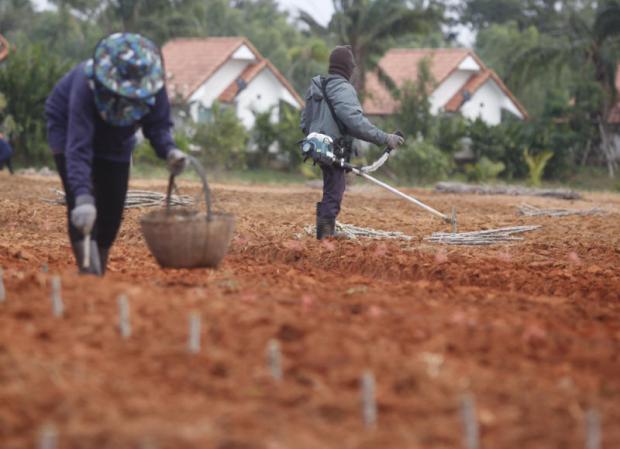
Thai tapioca exporters have agreed to stop lowering prices to put a lid on the losses incurred by local farmers, industry officials said last week.
Members of tapioca export agencies have agreed to work together to stop cutting prices for importers, mostly Chinese, in a bid to halt the domestic price from falling further, said Boonchai Srichaiyongpanich, president of the Thai Tapioca Trade Association.
The Thai Tapioca Trade Association, Thai Tapioca Product Factories Association and the Northeastern Tapioca Association are scheduled to sign a memorandum of understanding (MoU) on the issue.
The MoU will be signed and witnessed by the Commerce Minister this week, Mr Boonchai said.
"After the MoU, the Thai Tapioca Trade Association will issue a benchmark tapioca export price as a guideline for exporters every two months," he said.
Tapioca currently sells for 1.90 baht per kilogramme. However, some exporters who have bigger factories with lower costs previously sold it for 1.30 baht per kg, to the detriment of many Thai tapioca exporters and farmers.
"We expect this act of cooperation to put the brakes on sliding prices, which are falling due to pressure from some exporters," Mr Boonchai said.
The associations will monitor the issue closely, and any exporters who violate the new guideline will get a warning and risk being banned from exporting Thai tapioca, he said.
The associations have also requested tighter surveillance along the border to keep tapioca products from being smuggled in from neighbouring countries. Such contraband leads to a boost in supply that pushes prices down.
Thailand produces 30 million to 32 million tonnes of cassava a year. Most is produced in the form of tapioca starch, tapioca chips and other products for export. Exports now total 5 million to 7 million tonnes a year, worth 100 million to 120 million baht.
Thai tapioca exports are tipped to grow 10% this year to 6.5 million tonnes, Mr Boonchai said.


